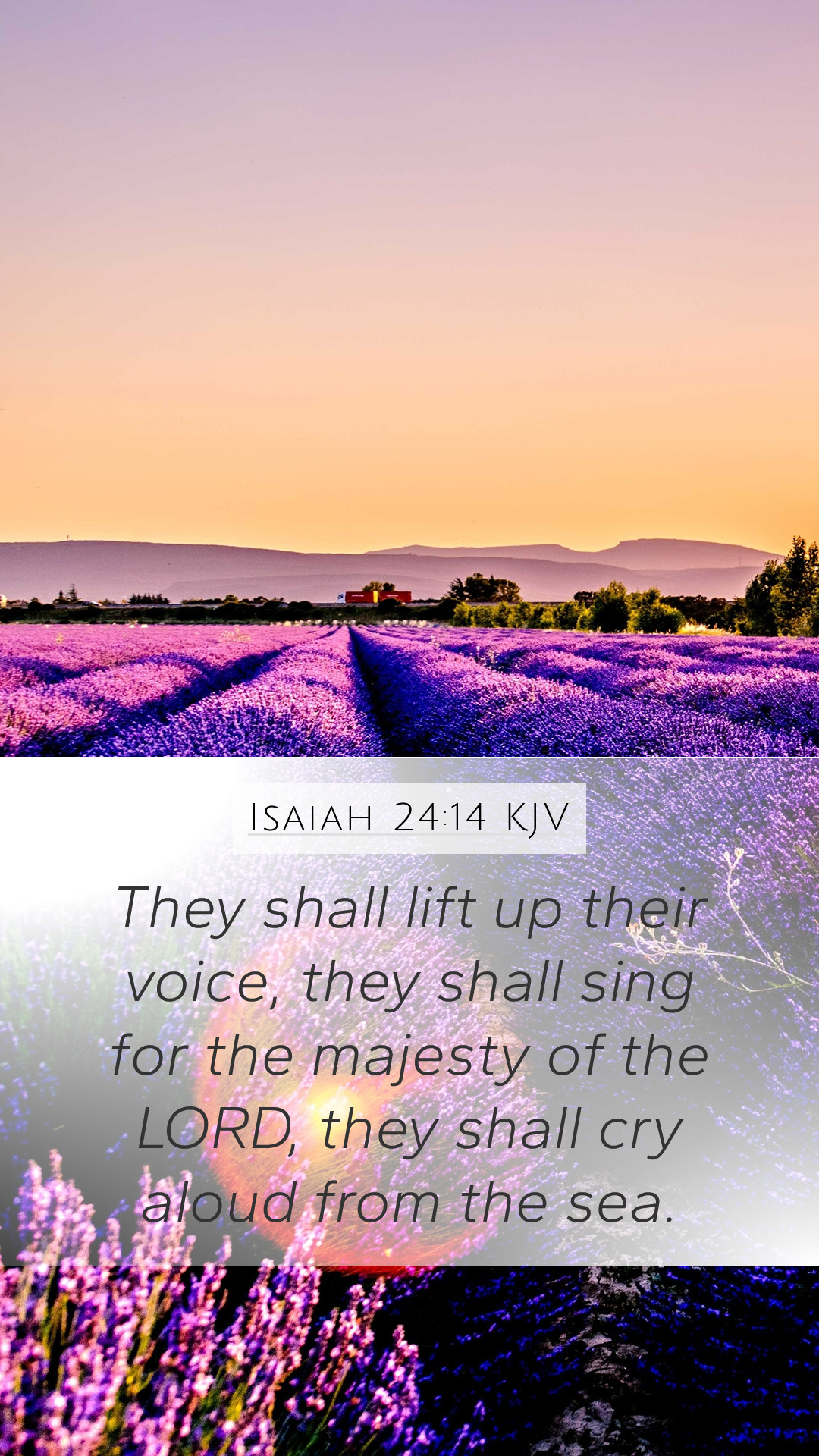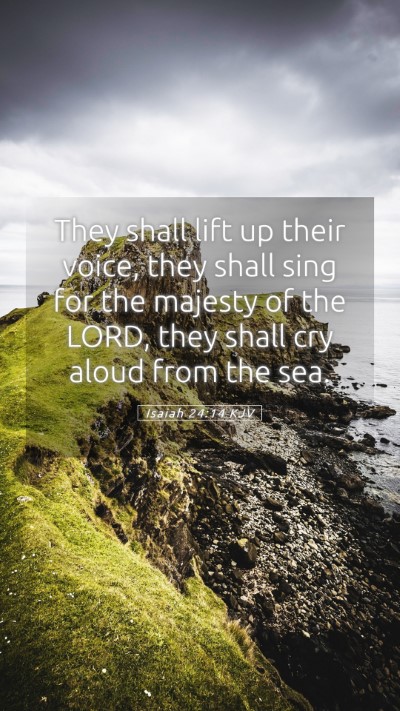Understanding Isaiah 24:14
Isaiah 24:14 states: "They shall lift up their voice; they shall sing for the majesty of the LORD, they shall cry aloud from the sea." This verse emerges from a prophetic context highlighting both the judgment and hope described in the book of Isaiah. Below are insights derived from various public domain commentaries that provide a deeper understanding of this scripture.
Contextual Background
The chapter illustrates the devastation that will come upon the earth as a result of God's judgment. Yet amidst this destruction, there is a revelation of hope and worship, where God's people are called to acknowledge His sovereignty.
Verse Meaning and Interpretations
- Matthew Henry's Commentary:
Henry emphasizes the dual aspect of despair and hope in this passage. He notes that despite the impending judgments, the faithful will respond to God's greatness with songs of praise. The act of crying aloud signifies their recognition of God's majesty even amidst turmoil.
- Albert Barnes' Notes:
Barnes observes that this verse represents a prophetic anticipation of ultimate restoration and the joy that people will experience. He suggests that the singing of the faithful is not just an expression of immediate response but a declaration of trust in God's eventual deliverance.
- Adam Clarke's Commentary:
Clarke interprets this as a response from the remnant of Israel. He highlights that the lifting of voices from the sea symbolizes a heightened awareness of God’s majesty and providential care during overwhelming circumstances. The sea often symbolizes chaos, yet from this chaos emerges a chorus of praise.
Theological Significance
Isaiah 24:14 speaks to the theme of divine sovereignty. This reflects a critical understanding within biblical theology: the acknowledgment of God's power even amid despair. As believers, the interpretation of this verse encourages constant worship and trust in God's plans, despite surrounding chaos.
Application and Insights
For Bible study groups and online Bible study, this verse serves as a reminder of the importance of vocalizing praise and thanksgiving regardless of circumstances. The act of singing can be an act of faith and an affirmation of God's greatness.
Practical Applications:
- In moments of crisis, redirect your focus towards worship.
- Use music and song as tools of expressing faith during trials.
- Engage in discussions about God's majesty in your Bible study lessons.
Cross References
This verse can be cross-referenced with:
- Psalm 95:1 - A call to worship through songs.
- Revelation 15:2-3 - The song of Moses and the Lamb, celebrating God's judgment.
- Jeremiah 31:7 - Expression of joy in the restoration of Israel.
Conclusion
In summary, Isaiah 24:14 beautifully encapsulates the interaction between human despair and divine majesty. It provides a profound insight into the significance of faith-filled worship. This exemplar of praise in the midst of trials can guide us in understanding and applying scripture in everyday contexts. By engaging in comprehensive biblical exegesis of such passages, we can uncover deeper theological implications and practical life applications.


